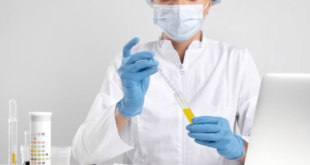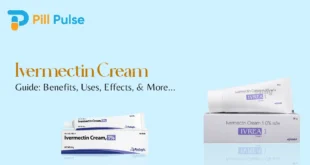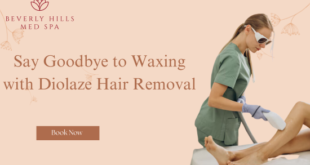Hormonal acne is a common and frustrating skin condition, particularly for teenagers, women in their 20s and 30s, and anyone going through hormonal changes. If you are looking for acne treatment then you must try Buy Isotretinoin Online to get acne free skin. It’s caused by fluctuations in hormones like testosterone, oestrogen, and cortisol, which lead to increased oil production and clogged pores. But with the right approach, hormonal acne can be effectively managed and treated. Let’s dive into how you can tackle this pesky issue and achieve clearer skin.
Understanding Hormonal Acne
Before jumping into treatments, it’s important to understand what hormonal acne is. Doxycycline Monohydrate 100 mg Tablet is the best way to treat Acne. Hormonal acne is triggered by fluctuations in hormones that cause your skin’s oil glands to produce more sebum. This oil, combined with dead skin cells, can clog pores and lead to breakouts. Hormonal acne often shows up around the jawline, chin, and lower cheeks. It can manifest as whiteheads, blackheads, cysts, or painful, inflamed pimples.
Key factors that influence hormonal acne include:
- Puberty: Hormone levels spike during adolescence, leading to increased oil production.
- Menstrual cycle: Many women experience breakouts before or during their periods due to hormone fluctuations.
- Pregnancy: Hormone changes during pregnancy can lead to acne flare-ups.
- Menopause: Hormonal changes during menopause, especially a drop in estrogen, can trigger acne.
- Stress: High stress levels increase cortisol, which can aggravate acne.
Now that you know the causes, let’s discuss how to manage and treat hormonal acne.
Effective Skincare Routine for Hormonal Acne
A proper skincare routine is crucial when managing hormonal acne. This routine focuses on controlling oil production, exfoliating dead skin cells, and preventing clogged pores.
1. Cleanse Gently but Effectively
Using a gentle, oil-free cleanser twice a day can help keep your skin clean without stripping it of essential moisture. Look for cleansers that contain salicylic acid or benzoyl peroxide. These ingredients help break down excess oil and reduce acne-causing bacteria.
- Salicylic acid: This ingredient is a beta-hydroxy acid that helps exfoliate the skin and unclog pores.
- Benzoyl peroxide: An effective antibacterial ingredient, benzoyl peroxide helps reduce inflammation and kill bacteria that cause acne.
Avoid harsh cleansers, which can irritate the skin and cause more oil production.
2. Exfoliate Regularly
Exfoliating your skin helps remove dead skin cells that can clog pores. Using a gentle chemical exfoliant with alpha-hydroxy acids (AHAs) like glycolic or lactic acid can improve skin texture and reduce breakouts. Be careful not to over-exfoliate, as it can cause irritation.
3. Use Topical Treatments
Topical treatments can help target and treat acne directly. Products with retinoids, niacinamide, and sulfur are effective in treating hormonal acne.
- Retinoids: These vitamin A derivatives help unclog pores and promote cell turnover.
- Niacinamide: A form of vitamin B3, niacinamide helps regulate oil production and reduce inflammation.
- Sulfur: Sulfur-based treatments can dry out pimples and help reduce their size.
4. Moisturize
Hydration is key, even if you have oily skin. Look for oil-free, non-comedogenic moisturizers that won’t clog your pores. Hydrating your skin helps balance oil production and prevents the overproduction of sebum.
5. Sun Protection
Sunscreen is essential, especially if you’re using acne treatments like retinoids or exfoliating acids. These treatments can make your skin more sensitive to the sun. Choose a broad-spectrum sunscreen with SPF 30 or higher that’s oil-free and won’t cause breakouts.
Lifestyle Changes to Manage Hormonal Acne
In addition to a good skincare routine, lifestyle changes can have a significant impact on hormonal acne.
1. Diet
Certain foods can trigger acne, particularly those that cause spikes in blood sugar levels. Refined carbohydrates, sugary foods, and dairy products may contribute to acne flare-ups.
- Low-glycemic foods: Opt for foods that are low on the glycemic index, such as whole grains, leafy greens, and legumes. These foods help maintain stable blood sugar levels and may reduce acne.
- Avoid dairy: Some studies suggest a link between dairy consumption and acne. Try eliminating dairy from your diet for a few weeks to see if your skin improves.
- Incorporate omega-3s: Omega-3 fatty acids found in fish, flaxseeds, and walnuts have anti-inflammatory properties that can help reduce acne.
2. Manage Stress
Stress is a major trigger for hormonal acne, as it increases cortisol production. Incorporating stress-relief techniques into your daily routine can make a big difference.
- Exercise regularly: Physical activity helps reduce stress and regulate hormones.
- Practice mindfulness: Techniques such as meditation, deep breathing, and yoga can help lower stress levels.
- Sleep well: Getting enough rest is crucial for hormone regulation and skin health. Aim for at least 7-8 hours of sleep per night.
3. Hormonal Therapies
For women, hormonal treatments such as birth control pills or spironolactone can be effective in managing hormonal acne. These treatments regulate hormone levels, which helps reduce breakouts. Birth control pills that contain both estrogen and progestin can help balance hormones, while spironolactone blocks androgen hormones that contribute to acne.
If you’re considering hormonal treatments, consult with your doctor to find the right option for you.
Prescription Medications for Hormonal Acne
If over-the-counter treatments and lifestyle changes aren’t enough, a dermatologist may prescribe stronger medications to treat hormonal acne.
1. Oral Antibiotics
Oral antibiotics, such as doxycycline and minocycline, can reduce inflammation and bacteria in moderate to severe acne cases. However, these medications are usually a short-term solution and shouldn’t be relied on for long-term use.
2. Retinoids
Prescription-strength retinoids, like tretinoin or adapalene, are powerful treatments for acne. They promote skin cell turnover and help prevent clogged pores. These treatments can be drying and may cause initial irritation, so it’s essential to start slowly and follow your dermatologist’s advice.
3. Isotretinoin (Accutane)
For severe hormonal acne that doesn’t respond to other treatments, isotretinoin may be an option. This powerful oral medication drastically reduces oil production and is highly effective at clearing up severe acne. However, it comes with potential side effects and requires close monitoring by a healthcare provider.
When to See a Dermatologist
If your hormonal acne is severe, painful, or not responding to over-the-counter treatments, it’s important to see a dermatologist. They can help diagnose the underlying cause of your acne and recommend appropriate treatments.
A dermatologist can also help you determine if your acne is hormonal or caused by other factors, such as genetics, medication, or lifestyle habits.
Hormonal acne can be frustrating and persistent, but with the right combination of skincare, lifestyle changes, and medical treatments, you can manage and treat it effectively. By understanding the root cause of your acne and taking proactive steps, you can achieve clearer, healthier skin. Remember to be patient, as acne treatments can take time to show results. If you’re struggling, don’t hesitate to consult with a dermatologist for personalized advice and treatment options.
 Our Gateway to Insightful Blogging Exploring Ideas, Sharing Knowledge, Inspiring Minds
Our Gateway to Insightful Blogging Exploring Ideas, Sharing Knowledge, Inspiring Minds



